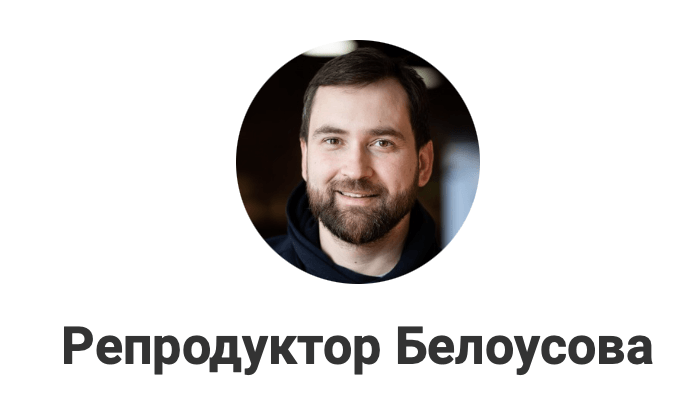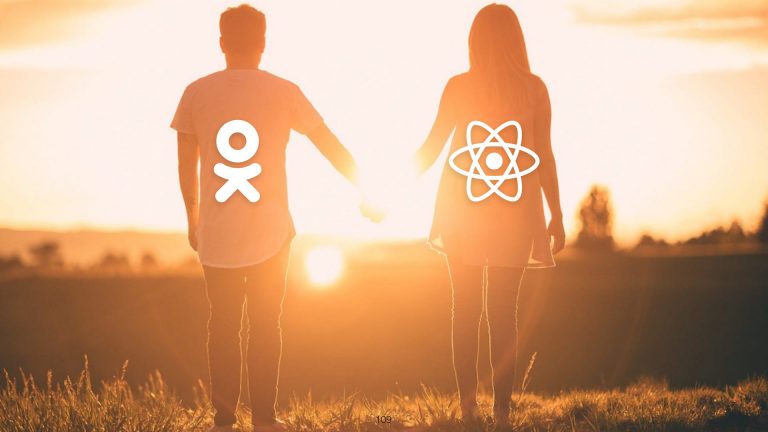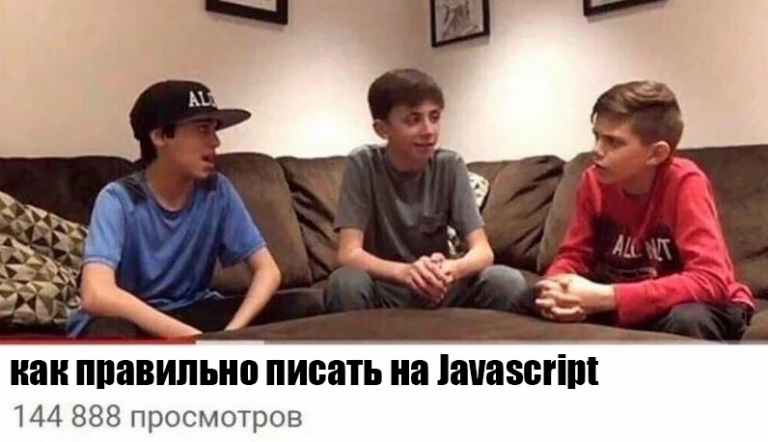Attention is a resource
If you consider money or time to be the most important human resource, I have good news for you: it is not. Money is a very nice thing, but any rich person will tell you that there are more important things. Time in general is a resource with a stretch, because it does not belong to you, it exists on its own, and everyone has it plus or minus equally. But what is definitely an important resource is attention, because this is not only a way to achieve what you want, but in some way it is what you want. In order.

Attention is a toolbox: sense organs, concentration, observation, logic, reflection, critical thinking, memory and the rest. Attention is consciousness. The voice in the head, voicing objects, conclusions and this text.
The object of attention is the working area, in which they work with a tool: collect data and interaction options, act and get results. Each instrument of attention is also an object.
Choosing the object of attention, we learn, fall in love, build a life and raise children. By focusing on what is not useful, we knock down the settings, clog the memory and live worse. It is logical that such an important ability must be kept in good shape and in the right direction. To do this, you need to see how it works.
The mechanics of attention
Choice is at the heart of human life. You will be right if you call it obvious. It is not obvious that with such a simple meaning, choice is literally the most significant and complex action in a person’s life.
Every action and thought is a choice. Your present and future is also a choice. Not labor, but a choice made a man out of a monkey, because labor is a conscious decision, the result of a choice. Man is the only creature capable of choosing an object of attention in opposition to nature, against instincts. Erich Fromm calls this ability Freedom. Religion calls it by the fall. If you doubt my words, philosophy or the Bible is at your service, because both are the doctrine of choice.
Being, without exaggeration, a fundamental ability, choice is an eternal and maddening problem. This problem has decision methods:
Rationalism. We are looking for many options, we study in detail and compare before choosing. First we think, then we act. Pros: the ability to predict the result, an in-depth understanding of the issue. Cons: thoughts push back actions, sometimes kill them completely. Risk reduction is inherent in rationalism – this can be both a plus and a minus.
Empiricism. We do not waste time on an in-depth study of options, we choose superficially or even at random – and see what happened. Pros: a quick way to get results, conclusions and experience. Cons: randomness.
Sometimes you need to think well before action, and sometimes it is simply harmful to think instead of action. Any optimal solution is always somewhere between these poles, it is always a compromise between thoughts and actions. Thinking or doing is also a choice.
Particularly resourceful people are constantly trying to go beyond this system and generally refuse to choose. Alas, this is not possible. First, the refusal to choose is also a choice, which already contradicts the idea. Secondly, the stronger the person persists in this desire, the stronger the resistance of the system. We are all familiar with this resistance from childhood – it is responsibility. I will return to her later.
When we have a great idea like giving up our education in order to start a rap career, we are ready to give it our full attention. Over time, we understand that the idea is, of course, good, but there are risks in it that have not been given enough attention. The imbalance of rationalism-empiricism breaks dreams of heifers and wheelbarrows, and we return to the search again. So any idea is reduced to a simple loop:
Assessing the usefulness of options and their risks;
Choosing and getting a result;
Conclusion, repetition of the cycle, taking into account new experience.
The actual benefit received by a person as a result of a choice can be called attention conversion. It is expressed in anything: money earned, time saved, pleasure, control, knowledge, prospects, peace of mind – priorities may be different, but all people have a common desire for them.
When attention conversion reaches a level that allows a person to actually achieve their priorities through choice, a special feeling appears, which in different cultures is generally characterized as Happiness.
The good news is that you don’t even need to start new habits to increase this conversion in the first stage – it’s enough to revise old ones to start with.
Attention costs
For talking about attention, a business in its basic metrics looks like a pretty visual model. Business in this simple picture is the part of the brain responsible for thinking. And if attention is a resource, then this resource has:
Purpose of use – vitality;
Income – recovery;
Expenses – distractions;
Turnover – the possible amount of information in the work;
Risks – the probability of an incorrect prediction.
Today and henceforth, I talk mostly about expenses. As in business, they can be divided into two key groups:
Permanent – those that hang in the background in the head. Most often they refer to long-term and significant topics such as work, relationships, children, thoughts about the past and future.
Variables – those that we briefly cling to of our own free will: how to respond to an event or the words of an interlocutor, what to do in the evening, what to wear.
While reading and thinking about choices and how to make decisions, I formed a simple rule for myself:
A person is able to concentrate on the choice as much as his turnover allows him minus fixed costs and variable costs with a priority above the chosen object of attention. Therefore, in order to increase the conversion of thinking, it is necessary to remove unnecessary expenses from attention.
Attention directly affects happiness. I have been applying this rule in everyday life long enough to declare its benefits. I have many examples to back it up, and I want to share a couple of them below.
Lie
If you’re looking for a fun way to get stuck in development reliably, then I recommend you lie more. This is a good example of a constant expenditure of attention.
This time I’m not talking about delicacy, flattery, and other noble lies. It doesn’t do much harm, but there’s nothing good about it either. It is about the intentional desire to mislead others on significant issues. We choose such a lie because it seems to us the optimal solution, but it is almost always an illusion:
If we lie to hide an act or inaction that should not have been done, then we begin to spend attention on this even before the very fact of lying: on the choice of version, implementation, perspectives.
In the moment of lying, we lose concentration, because all our attention is focused on the need to take into account all the nuances in order for the lie to succeed. Along with this, we experience stress from the fear of being caught in this lie and shame, because we understand that we are doing something bad.
If the lie is successful, the only way to keep it alive is to keep it in mind all the time. Over time, this requirement only increases, because the older the lie, the more unpleasant the consequences for its disclosure. At this stage, the feeling of loss of freedom of choice becomes more pronounced.
Lies will most likely require more lies to keep the original one secret. So lies acquire the property of a geometric progression. Often at this point, we realize that we have already spent more resources on lying than we would have lost by admitting the truth.
The more consequences a lie has on itself, the more it gets out of control. The consequences become unpredictable, and if at this stage we do not find the strength to admit it, then soon our own chaos turns our life into hell, and the Bible is again at your service.
All this path is accompanied by shame, condemnation and a whole set of self-destructive methods that devour attention and do not allow us to develop. This can be avoided if you build your life in such a way that the need for lies disappears. The basic principle that allows this to be done is called responsibility.
When an adult continues to live the illusion of avoiding responsibility, the world sooner and later clicks him in the nose. If he doesn’t make a timely conclusion, he clicks harder next time. A lie is simple and pleasant today, but difficult tomorrow. Responsibility works exactly the opposite, because it is the truth. Ironically, submitting to responsibility is the only way to remain free. Many intelligent people call this the key to happiness.
If you regularly trip over the consequences of your lies, then it’s time to simplify your life. Where to begin?
Start simple: admit the obvious. Recognize that you are not always right, because no person can be always right. Recognize that your principles must change over time as you change yourself. Recognize that there are people smarter than you – there is nothing to be ashamed of. If your life does not suit you, admit your responsibility for this, because there is simply no other option. Don’t lie to yourself and you won’t have to lie to others.
As soon as the rejection of lies becomes a priority for a person, his life becomes better at that very moment. This is not a lie.
Smartphone
If you are looking for a place to put a ton of attention and not get any benefit from it, then I will tell you: in the mindless use of a smartphone. This is a good example of variable attention costs.
A person has never had such a choice of free features and services, but this freeness is very relative. If you are not paying for a service with money, then you are paying with attention. Here are some ways to pay less:
Filter content. Instagram and Tiktok are very cool services, but try to remember at least a quarter of what you watched there 20 minutes ago. If you uncontrollably stick in such services, use the time tracker in the settings. This is a benefit, not a limitation.
The bell on YouTube and not only is just a joke on the user, because the best way not to miss important content is to unsubscribe from unimportant content. Feel free to abandon the usual – your favorite authors rarely change with the audience, it is easier for them to grow with stable content of the same type.
Unsubscribe from unwanted emails. There is an Unsubscibe button in the footer of every email, or just send it to spam. If you have hundreds of mailings, unsubscribe gradually or start a new mailbox with the transfer of important services to it. An empty inbox does not distract attention and reduces the time to search for the necessary information.
Turn off all unnecessary notifications about likes and comments in social networks, push notifications in services, channels and groups in messengers. It is better to check everything addressed not personally to you at a time later. As always, there is nothing more important than current affairs.
Set up daily tools. Automate applications as much as possible. Add abbreviations and common typos to autocorrect. Add important addresses to favorites of maps and taxis so that you do not write them every time. These little things add up to save time.
Endless games of the same type, such as farms or three-in-a-row, cease to be interesting as soon as attention is consciously perceived as a resource – it becomes simply a pity to waste it. Attention retention game mechanics are just a reference evil.
Scraps in the comments are not needed.
Make it so don’t see red stickers apps on the screen.
The list of such examples is endless, because it concerns literally everything in our lives. You will never regret paying too little attention to unimportant things.
Conclusion
Get rid of the excess – become happier.
Read on this topic
Jordan Peterson – 12 Rules for Life. An antidote to chaos.
Erich Fromm – Escape from freedom.
Eckhart Tolle – The Power of the Present
I have cart, in it I write texts similar and unlike this one, and in general I have fun in every possible way. There are no comments, no memes, I don’t sell courses or mushrooms there. My channel does not require much attention.





